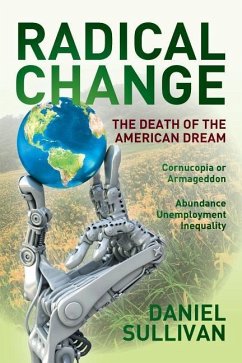We are emerging from an age of machines into an age of knowledge-driven technologies that are reshaping our world, creating a paradox of Winners and Losers. Corporate profits are at an all-time high and the very rich have not had it this good since the eve of 1929. But, for the rest of America, something has gone very wrong with the economy. Wages have stagnated for decades, inequality is at an historic level and the hopes of working families have all but evaporated. Sadly, we are witnessing the death of the American Dream. No one seems to know why, a surprising percentage of America does not yet seem very upset, and many politicians, economists, and the one-percenters are doing everything they can to ensure that nothing changes. In laypersons' terms, Radical Change: The Death of the American Dream describes the evolution of computer intelligence and the robotic capabilities it empowers. As these technologies become smarter they will increasingly win the battle for middle-income jobs, continue to disrupt major industries, and fundamentally alter the economic balance in our society. Someday these technologies may even escape our control.
Hinweis: Dieser Artikel kann nur an eine deutsche Lieferadresse ausgeliefert werden.
Hinweis: Dieser Artikel kann nur an eine deutsche Lieferadresse ausgeliefert werden.







